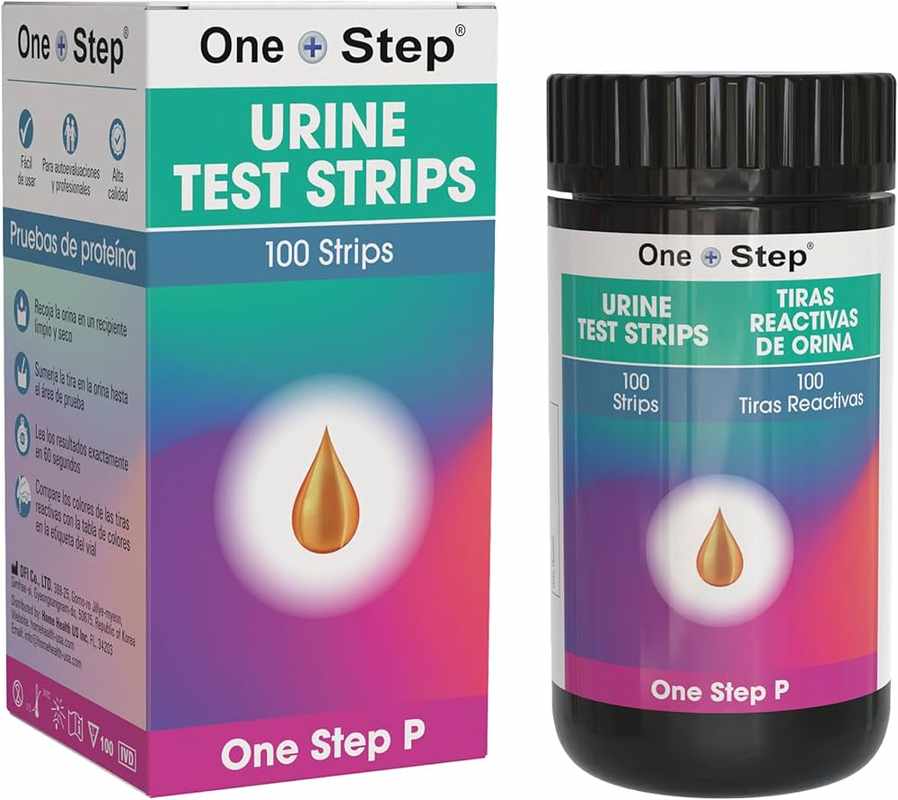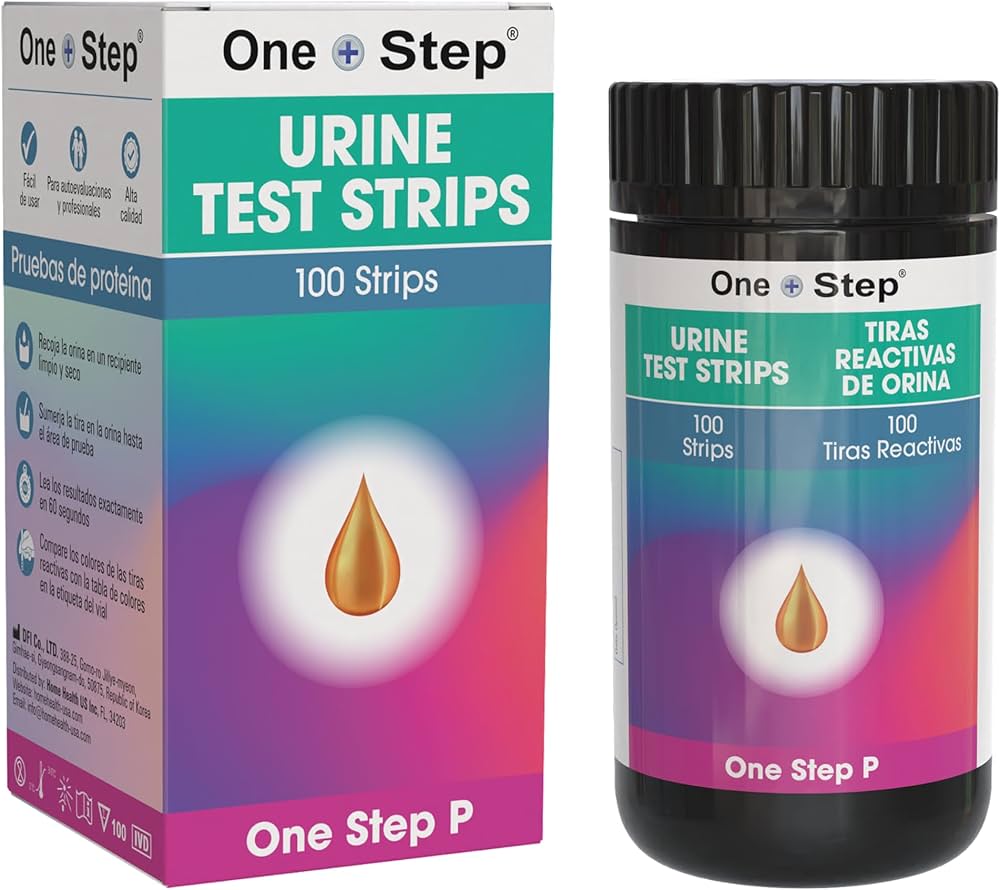A single drop of urine can reveal a world of information about our overall health. Among the many substances that can show up in your pee, one protein in particular has caught the attention of medical professionals and patients alike: microalbumin.
The Significance of One Protein in Urine
Microalbumin is a type of albumin, a protein produced by the liver and carried through the bloodstream. In healthy individuals, only tiny amounts of albumin appear in urine. However, when there’s an issue with kidney function or other health concerns arise, microalbumin levels can increase significantly, indicating changes in the body.
Why Does It Matter?
The significance of one protein in urine lies in its potential to alert us to underlying conditions that require attention. For instance, diabetes and hypertension are two common chronic diseases that can cause elevated microalbumin levels. If left undiagnosed or unmanaged, these conditions can lead to serious complications, such as kidney damage, heart disease, and even blindness.
In this blog post, we’ll delve deeper into the world of microalbumin and explore what it means for your health. We’ll discuss how it’s measured, what normal levels look like, and most importantly, what increased levels can indicate. Whether you’re a healthcare professional or simply someone looking to better understand their body, this post aims to provide valuable insights and guidance on the importance of one protein in urine.

A single drop of urine can reveal a world of information about our overall health. Among the many substances that can show up in your pee, one protein in particular has caught the attention of medical professionals and patients alike: microalbumin.
The Significance of One Protein in Urine
Microalbumin is a type of albumin, a protein produced by the liver and carried through the bloodstream. In healthy individuals, only tiny amounts of albumin appear in urine. However, when there’s an issue with kidney function or other health concerns arise, microalbumin levels can increase significantly, indicating changes in the body.
Why Does It Matter?
The significance of one protein in urine lies in its potential to alert us to underlying conditions that require attention. For instance, diabetes and hypertension are two common chronic diseases that can cause elevated microalbumin levels. If left undiagnosed or unmanaged, these conditions can lead to serious complications, such as kidney damage, heart disease, and even blindness.
In this blog post, we’ll delve deeper into the world of microalbumin and explore what it means for your health. We’ll discuss how it’s measured, what normal levels look like, and most importantly, what increased levels can indicate. Whether you’re a healthcare professional or simply someone looking to better understand their body, this post aims to provide valuable insights and guidance on the importance of one protein in urine.
How is Microalbumin Measured?
Microalbumin is typically measured using a dipstick test, which involves dipping a special strip into your urine. The strip changes color depending on the level of microalbumin present. This simple and non-invasive test can be performed in a doctor’s office or at home.
More advanced testing methods include enzyme-linked immunosorbent assays (ELISAs) and radioimmunoassays, which provide more accurate measurements but are typically used in laboratory settings. Your healthcare provider may recommend one of these tests if your dipstick test indicates elevated microalbumin levels or if you have a history of kidney disease.
What do Normal Microalbumin Levels Look Like?
In healthy individuals, microalbumin levels usually fall within the range of 10-300 milligrams per 24 hours. This range is considered normal and indicates that your kidneys are functioning properly.
If your levels are outside this range, it may indicate kidney damage or other health concerns. For instance, if your levels are above 300 milligrams per 24 hours, it could be a sign of early-stage diabetic nephropathy or hypertension-related kidney damage.
What do Increased Microalbumin Levels Indicate?
Increased microalbumin levels can indicate various health concerns, including:
- Diabetes: High blood sugar levels can damage your kidneys and cause increased microalbumin excretion.
- Hypertension: Uncontrolled high blood pressure can also damage your kidneys and lead to elevated microalbumin levels.
- Kidney disease: Underlying kidney damage or disease, such as chronic kidney disease (CKD), can cause microalbumin levels to increase.
In conclusion, one protein in urine – specifically microalbumin – plays a vital role in our overall health. By understanding how it’s measured and what normal levels look like, we can better recognize the signs of underlying conditions that require attention. In our next blog post, we’ll explore the importance of monitoring microalbumin levels and discuss what you can do to maintain healthy kidneys.
Get Expert Insights on Urine Protein Tests
Don’t know what to make of your urine protein test results? Our medical and health experts are here to help you understand the implications.
Consult with a Medical ExpertIn summary, we’ve covered the significance of microalbumin, a protein that appears in urine, and its potential to indicate underlying health concerns. We’ve discussed how elevated levels can be a sign of kidney damage or other chronic diseases like diabetes and hypertension.
What’s Next?
As you continue on this journey of understanding your body, remember that early detection and intervention are key to preventing serious complications. By being aware of the subtle changes in your urine, you can take proactive steps towards maintaining optimal health.
So, what can you do today? Schedule a check-up with your healthcare provider, ask about microalbumin testing, and take control of your well-being. Remember, a single drop of urine can be a powerful indicator of overall health – use this knowledge to empower yourself!
The Ultimate Guide to Intermittent Fasting for Women: Take control of your health and wellness with this comprehensive guide to intermittent fasting specifically designed for women. Discover the benefits, best practices, and expert advice on how to make this powerful dieting method work for you.
Balanitis vs Herpes: A Picture Comparison of Penis Issues: Don’t be confused by similar symptoms! This article provides a clear visual comparison between balanitis and herpes, helping you identify the correct cause behind your penis issues. Get the facts and take control of your health today.


